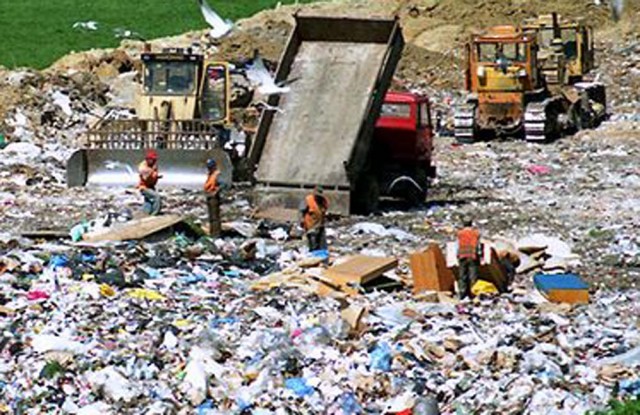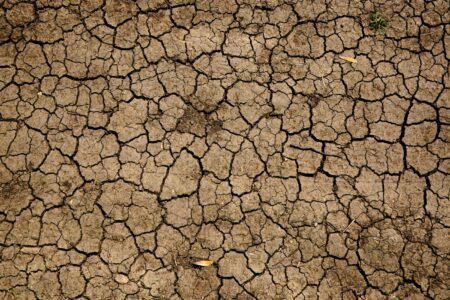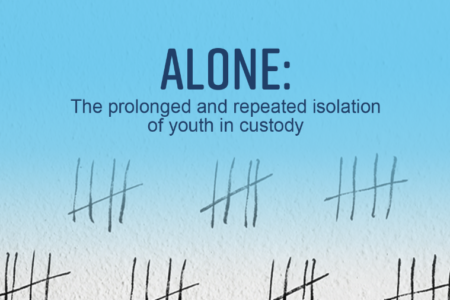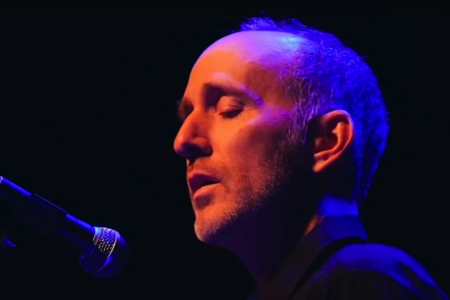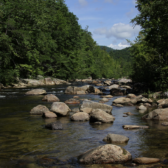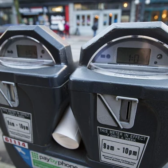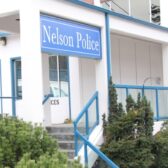About the RDCK Resource Recovery Plan
The RDCK’s three sub-regional Resource Recovery services have a combined annual expenditure of roughly $6 million.
In recent years the cost of delivering these services have risen as fuel and contract prices have increased and new services have been added to Resource Recovery programming. During the same period required work at RDCK facilities and new equipment purchases were deferred pending completion of a master plan for waste infrastructure.
As part of developing this plan, the RDCK completed financial modeling of several operational scenarios, with the intention of selecting an optimally efficient system configuration.
The modeling showed that the no change or “status quo” option was the most costly option overall in the long term, which established a strong business case for making required changes to our systems.
Alignment with Zero Waste Goal
In March 2006, the RDCK Board passed a resolution committing the RDCK to pursue the goal of achieving Zero Waste. This broad, overarching goal sets a long-term direction for the RDCK to work towards.
As this plan is the RDCK’s first since committing to the Zero Waste goal, strategies for aligning RDCK operations and services with the Zero Waste goal have been incorporated.
In addition to RRP commitments to improve services for composting and wood waste management, the Plan reflects an approach to resource use within RDCK operations consistent with the Zero Waste philosophy.
Use of fossil fuels will be reduced significantly through efficiency improvements and new equipment. Most importantly the RRP represents the RDCK’s critical first steps away from our historic focus on landfill disposal.
Reduce Greenhouse Gas Emissions
The RDCK is a signatory to the British Columbia Climate Action Charter. In signing the Charter, the Regional District formally acknowledges the threats presented by climate change and has subsequently agreed to move towards achieving the goal of carbon neutral operations.
Strategies for reducing greenhouse gas emissions by improving material hauling efficiencies and consolidating landfill operations form a central component of the RRP.
What specific commitments are included in the RRP?
The Resource Recovery Plan contains many commitments to achieve the Plan objectives and summarized as follows:
• Development of a comprehensive disposal bylaw which will include expanded material definitions, clarified RDCK waste acceptance policy, and a revision of the tipping fee schedule
• Development of a unified region-wide recycling program comprising the three existing sub-regional programs
• Development of community partnerships for innovative service delivery
• Improved programs and new facilities for yard and garden waste composting
• Implementation of new Multi Point pickup waste transfer equipment for the West and Central sub-regions which will significantly improve hauling efficiency and lower greenhouse gas emissions
• Possible relocation of the Nelson Transfer Station with planned upgrades
• Upgrades to public drop-off areas at most RDCK transfer stations and landfills
• Discontinuing of current landfill operations at the Nakusp Landfill and the Central Landfill in Salmo. Waste will be redirected to the Ootischenia landfill, resulting in large gains in operational efficiency
• Permanent capping of completed portions of the Creston, Central, and Nakusp landfills.
What will implementation of the Resource Recovery Plan cost?
Within the Plan period the RDCK will undertake approximately $14 million in capital expenditures, almost 25 per cent of which is being spent on required landfill capping deferred from previous years.
A significant portion of the capital costs will be recovered through operational efficiencies enabled by consolidated landfill operations and upgraded waste transfer equipment.
Complete details of the financial plans for each sub-region are included in the draft RRP posted on the RDCK website.
RDCK residents can participate and submit feedback by:
1. Completing a survey/comment form on our website: www.rdck.bc.ca
2. Completing a survey/comment form in person at one of the Open Houses
3. Sending comments via e-mail: wastedept@rdck.bc.ca
Source: Regional District of Central Kootenay



